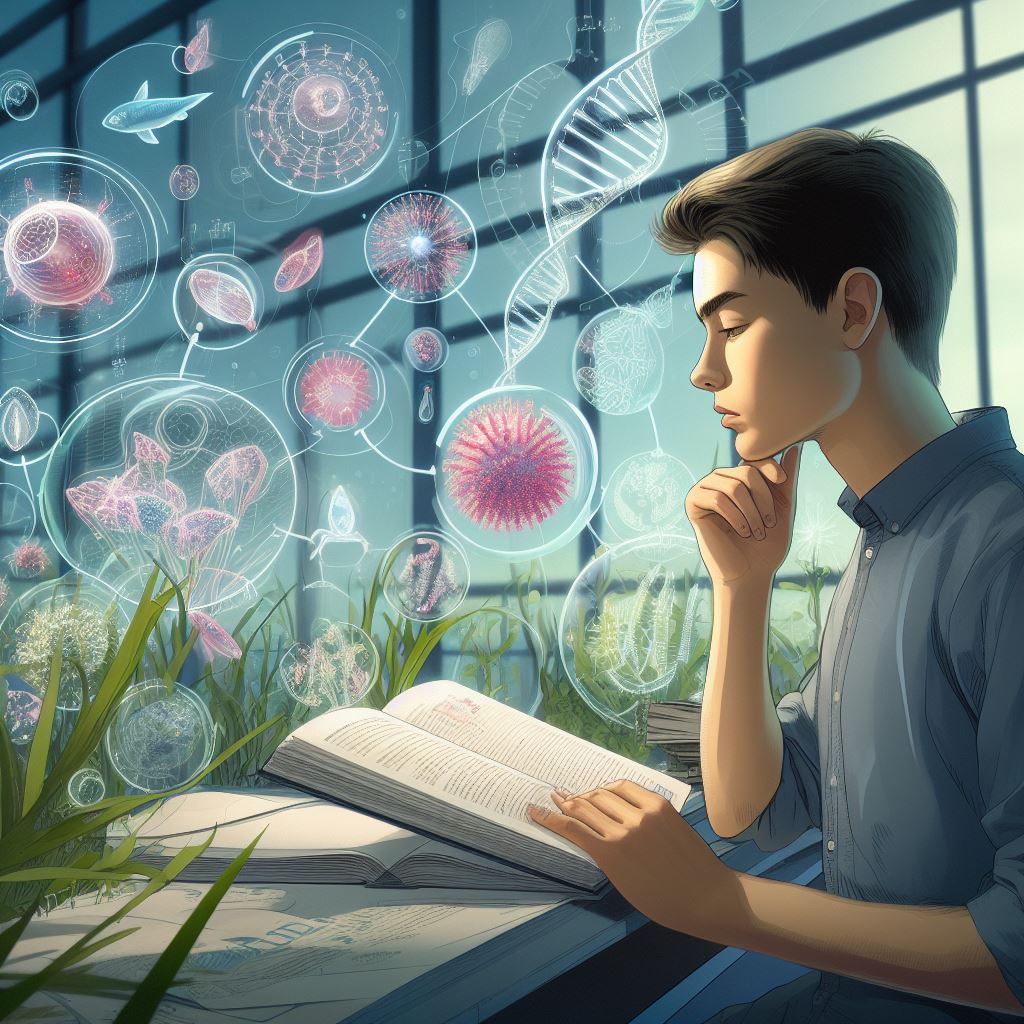
Is Biology Truly Difficult? Unraveling the Science
Biology, often known as the science of life, delves deep into the mysteries of existence, from the macroscopic to the microscopic. As students transition from basic to more complex topics, many grapple with the challenges of studying biology and its inherent intricacies. But why exactly is that?
What is Biology?
At its core, biology is the scientific study of living organisms and their interactions with each other and their environments. It encompasses a wide range of branches, such as:
- Genetics: The study of heredity and variation in organisms.
- Ecology: Investigating interactions among organisms and their environment.
- Microbiology: Examining microscopic organisms like bacteria and viruses.
- Zoology: The science of animals and their behaviors.
The list goes on. Each of these branches dives into unique realms, giving biology its multidimensional nature.
Why is Biology Considered Difficult?
Memorization Overdrive
One of the foremost complexities in biological science lies in its voluminous content. As Sarah, a college sophomore majoring in biology, shared, “Every chapter introduces new terms, processes, and systems that need to be memorized to grasp the bigger picture.” The process of photosynthesis alone, for instance, involves a myriad of steps, components, and outcomes.
Complex Processes and Abstract Concepts
Biology isn't just about memorization. It demands understanding of intricate processes. Consider cellular respiration or the mechanics of DNA replication – these are no simple subjects. They require students to visualize processes at a molecular level, often without seeing the real-time action.
Comparing to Other Sciences
Physics has its equations. Chemistry has its reactions. But biology? It has layers of information, processes, and systems. When juxtaposed with subjects that are more formulaic, biology stands out as more descriptive, making it a study of complexities.
However, every science has its own set of challenges. While one might find physics equations daunting, another might find the intricacies of biology equally perplexing. It's often about personal inclinations and strengths.
Voices from the Classroom: Is it Really that Hard?
Liam, a high school biology teacher, remarked, “I've seen students who adore biology because it's tangible. They can relate to it, see it in action around them. Yet, others struggle, especially when concepts become abstract.”
On the other hand, Rachel, a college freshman, commented, “For me, biology is a puzzle. Yes, it's tough. But once you piece everything together, the image is rewarding.” Such testimonials provide insight into the varied experiences students have with biology.
Benefits of Delving into Biology
Despite its challenges, understanding and studying biology offers numerous rewards:
- A Deeper Understanding of Life: Biology provides a lens to understand the very essence of life, from our body's responses to external stimuli to the biodiversity of our planet.
- Critical Thinking: With its myriad processes and systems, biology hones analytical and problem-solving skills.
- Connection with Nature: Understanding biology often leads to a profound appreciation for nature and its intricate balance.
Strategies to Make Learning Biology Easier
- Visualization: Use diagrams, charts, and animations. Tools and apps today offer interactive ways to visualize complex processes.
- Chunking Information: Break down topics into smaller, digestible chunks. Tackle one piece at a time.
- Real-world Application: Relate biological concepts to real-world scenarios. How does photosynthesis relate to your daily food? How do genetics play a role in your family traits?
In Conclusion
Biology, like any natural science, has its challenges. While some view it as a biologic study full of daunting terminologies and abstract concepts, others see it as an exciting realm full of discoveries.
It's imperative to remember that the perception of difficulty is subjective. With the right strategies, resources, and mindset, the study of life science can be an enriching experience, unveiling the mysteries that govern the living world around us.
References:
- Academic Journals on Biology Education: [Journal of Biological Education], [Biology Teaching Methods]
- Student Testimonials sourced from [University of Life Sciences Student Forum]
- Research on Student Perceptions: [Student Science Perception Study 2023]
- Biology Curriculum from [National Science Education Standards]





